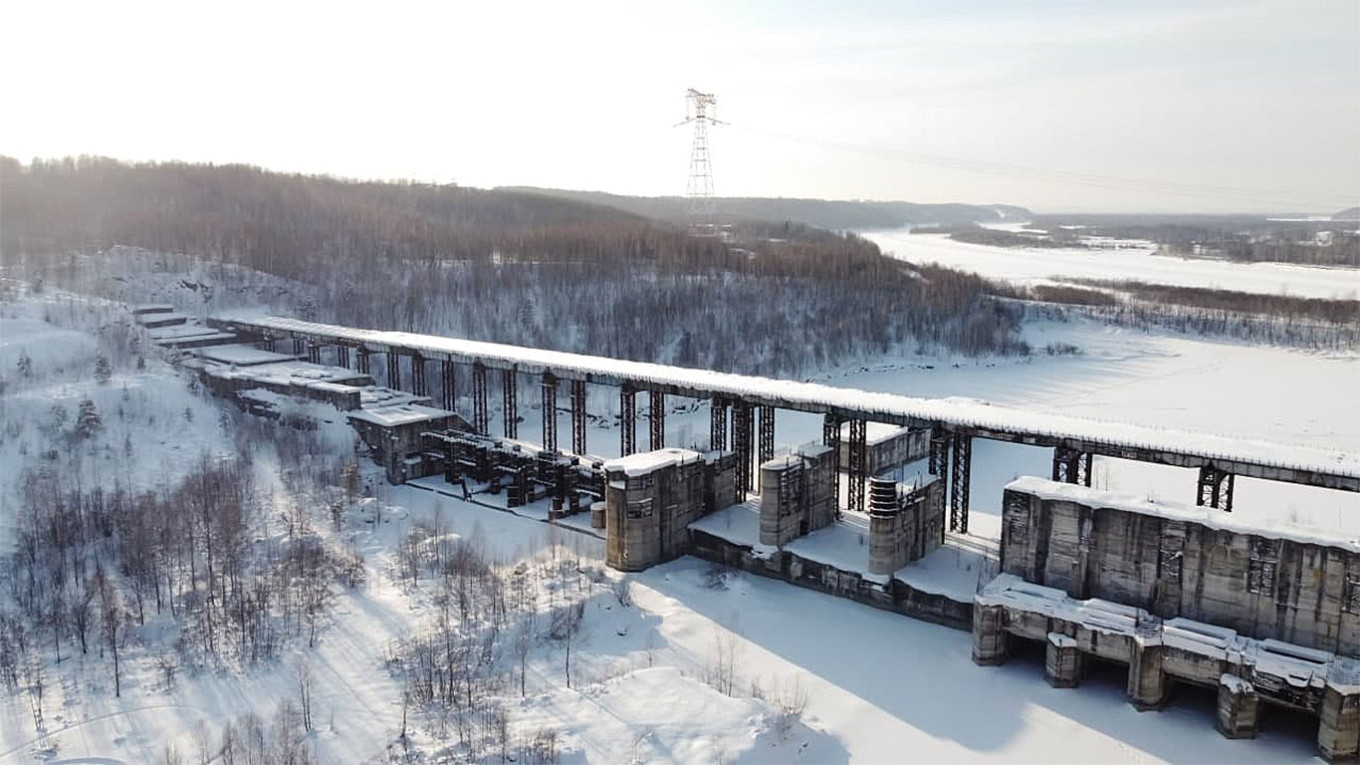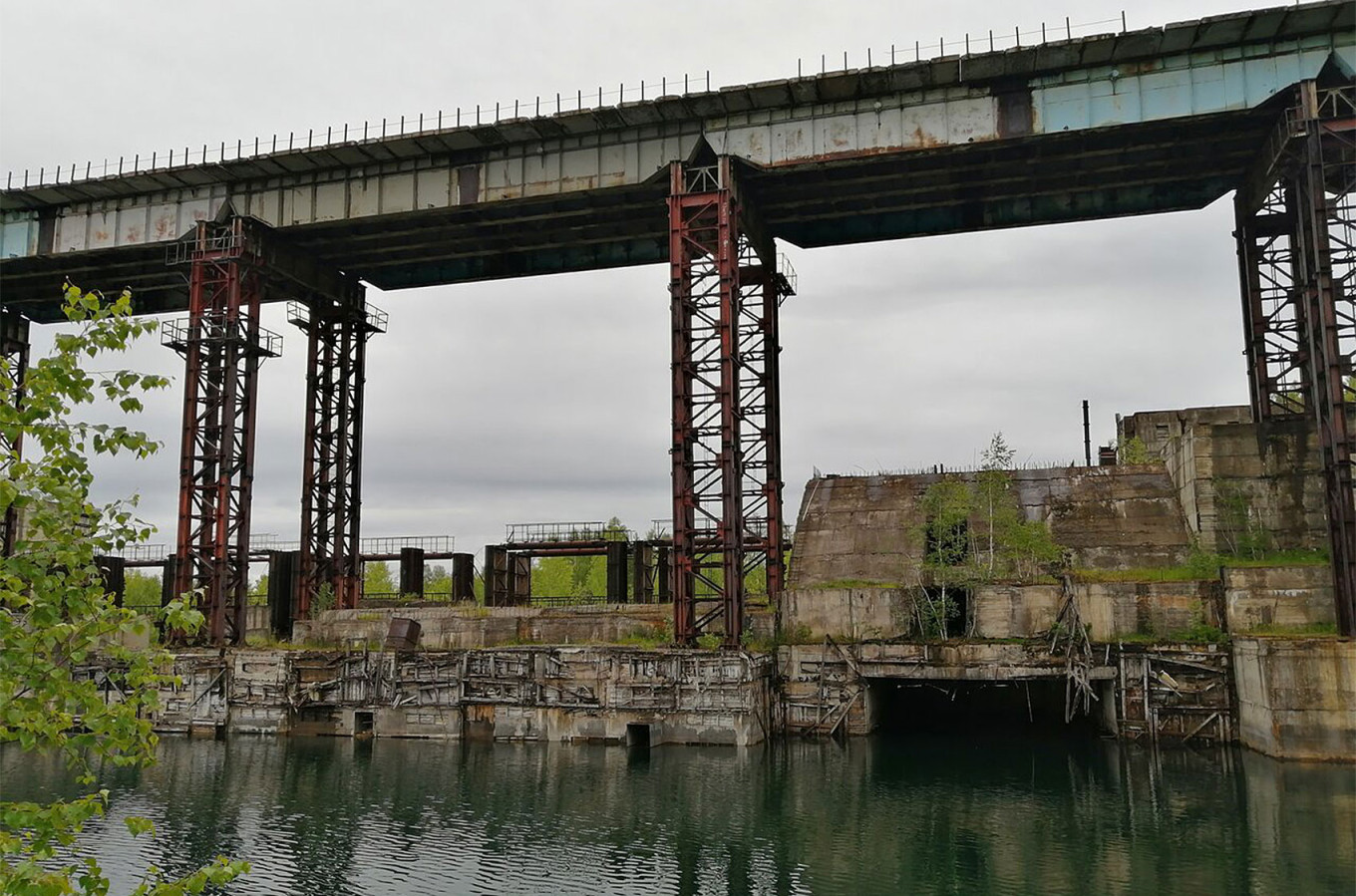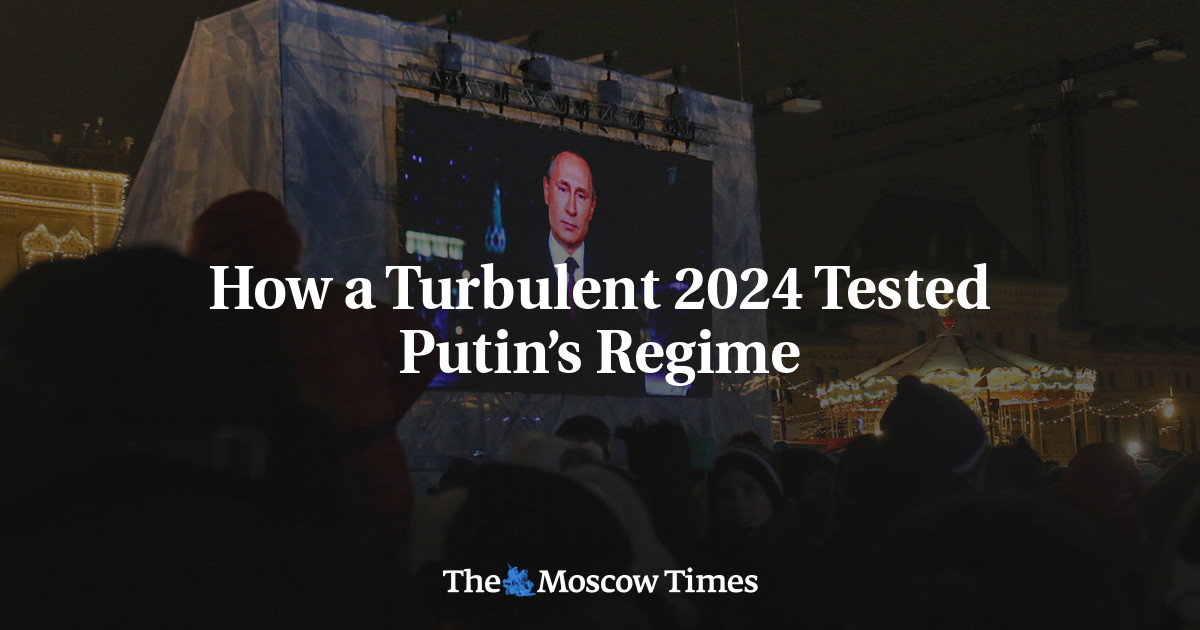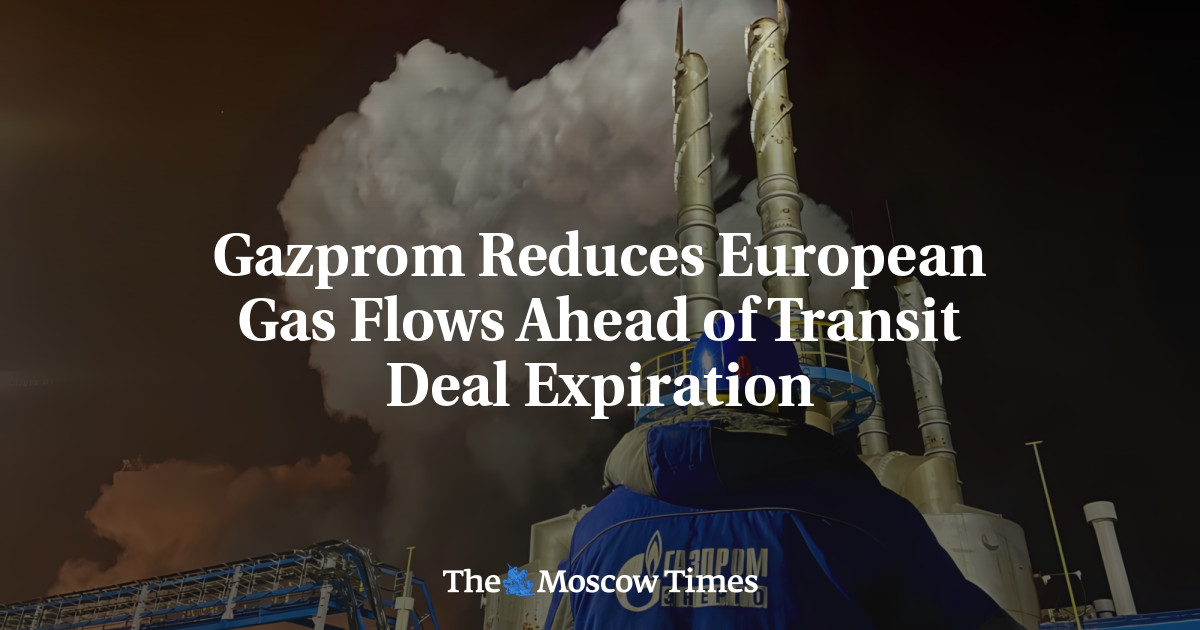Like other infrastructure projects in the U.S.S.R., the Krapivinskaya hydropower plant was born at a time when the Soviets dreamt of bending the natural world to its will to fuel industrial growth.
Decades later, this rusting hulk of concrete and iron still looms above the Tom River in Siberia’s coal-rich Kemerovo region, half-finished and half-forgotten.
This may soon change, as the Russian government seeks to diversify the local economy in Kemerovo (Kuzbass) away from coal. And big business, aiming to align itself with the fight against climate change, sees hydropower as a way to reduce its carbon emissions.
The push for Krapivinskaya is driven by the interests of aluminum giant Rusal and its parent company En+, which seeks to produce aluminum using renewable hydropower and boast of its low carbon footprint to international markets, experts and activists told The Moscow Times.
Meanwhile, those in the local community who speak out against the project, wary of its environmental impact, have been subjected to intimidation.
“I became interested [in the project] because hydropower plants are seen as renewable, clean energy sources — but as it turned out, that's not the case at all,” a local activist opposing the project since 2021 told The Moscow Times.
"I realized this when I started speaking with people and specialists involved with [the project]. When I found out that the construction was frozen in 1989, I realized that it was for a reason," they said.
The activist requested anonymity due to the possibility of repercussions for speaking to foreign media.
The original Soviet plan for the Krapivinskaya hydropower plant and reservoir, which aimed to regulate the Tom River’s flow and improve water quality, was stalled in 1989 due to a lack of funding and disagreements over its environmental impact.
In recent years, businesses like the state-owned hydropower company RusHydro and the aluminum giant Rusal have voiced an interest in completing the Krapivinskaya plant.
In a bid to expand its low-carbon portfolio, Russian hydropower group and aluminum producer En+ pledged in March an investment of 500 billion rubles ($5.4 billion) in several large hydropower plants in Siberia, with Krapivinskaya identified as a priority.
 The Krapivinskaya hydropower plant.
Kuzbass Administration
The Krapivinskaya hydropower plant.
Kuzbass Administration
Officials in Kuzbass argue that the project will improve water quality, form strategic freshwater reserves and create 3,300 new jobs.
However, some residents, skeptical of these purported benefits, have turned to legal means to halt the project.
Yet their efforts have not gone unchallenged by Russia’s law enforcement agencies.
'Blatant lawlessness'
During public hearings on the Krapivinskaya project held in February 2022 across several districts in Kuzbass, certain residents encountered obstacles in attending.
Some were shut out of the hearings, while others were stopped by traffic police en route and sent to a narcology clinic for drug tests.
"It was the first time I had witnessed such blatant and undisguised lawlessness. When activists first called and registered for the hearings, they were told, 'Okay, come.' But when they arrived, the door was closed," the anonymous activist said.
In March, police raided the apartment of Maxim Andrianov, a local public interest lawyer. He also received threats from unknown individuals and had his tire slashed in 2020. Some link the pressure on Andrianov to his opposition to Krapivinskaya.
Activists say that the project is more likely to harm the environment than benefit it. Residents of the settlements that will be submerged if the hydropower plant is completed have also voiced opposition.
The Kuzbass administration had initially approached the project with caution, said the activist. But when former Governor Sergei Tsivilyov came to power in 2018, authorities started to present it in a positive light.
Tsivilyov, who is reportedly married to President Vladimir Putin's great-niece and was appointed as Russia’s energy minister this month, is notorious for his intolerance of protesters.
"I'll crush anyone who tries to attack the authorities,” local media quoted him as saying during a 2020 meeting with the public.
“With the authorities, you need to ... sit down at the table and find the optimal solution together. Not to jump out to rallies with drug addicts — but to sit down and talk.”
For now, activists have managed to delay the project, winning several cases where courts deemed the 2022 public hearings in several districts illegal.
Taming the river
Attempting to paint the Krapivinskaya hydropower plant as a low-carbon energy source is “complete nonsense,” ecologist Yevgeny Simonov told The Moscow Times.
The flooding required to construct the plant would release methane, a potent greenhouse gas, Simonov said.
"There will be huge methane emissions coming from decaying organic matter at the bottom [of the created reservoir]. Additionally, there will be many shallow areas, so this methane will quickly reach the surface,” Simonov said.
According to a 2022 environmental impact assessment (EIA), the flooding will reach two nature reserves, six cemeteries and two livestock burial grounds. Nearly 1,000 people from nearby villages will be forced to relocate.
“Significant parts of two large reserves will be lost. These reserves are crucial for hoofed animals and other wildlife, and the creation of the reservoir will bring nothing good in terms of their migration and protection because the area will become much more accessible to poachers,” Simonov said.
Another point of concern is the potential impact on the Tom River’s ecosystem and water quality, as wastewater from the city of Novokuznetsk and coal mines in the region will flow into the new reservoir.
Simonov said the construction on the Tom River, one of the last major Siberian rivers still untouched by major dams, could impact the migration routes of fish species including taimen and grayling.
The flooding zone is home to dozens of protected plant and mushroom species, and the construction itself will result in the loss of land habitats for animals as well as spawning grounds for diverse aquatic life.
 The Krapivinskaya hydropower plant.
Yulia Khlevnaya / yandex.ru / maps
The Krapivinskaya hydropower plant.
Yulia Khlevnaya / yandex.ru / maps
Though the EIA contains proposed measures to compensate for the project’s environmental impacts, such as fish stocking, experts see them as inadequate.
“A significant portion of the Kemerovo region is already heavily disturbed, and here [on the Tom], together with a nature reserve located higher up in the mountains, is a kind of enclave of environmental well-being,” Simonov said.
“[The construction] will undermine the fish stocks and destroy ecosystems, and large natural areas used by the public for recreation will also be lost.”
As the Russian government plans to use taxpayer money to fund Krapivinskaya’s completion, Simonov believes the project is highly corruption-prone due to its abnormal cost sheet.
"There is a huge opportunity to allocate an endless amount of money for non-standard solutions to adapt structures built 40 years ago to modern construction needs. This involves piece work with costs that are truly unknown to anyone,” the expert added.
Uncertain outlook
Aside from the public resistance, financial struggles have also complicated the Krapivinskaya stakeholders’ plans.
In January, Deputy Energy Minister Pavel Snikkars said that the government was in discussions to choose the company that would complete the Krapivinskaya plant.
Another factor that could prolong the project's timeline is the impact of Western sanctions.
Rusal’s exports are set to fall by about one-third after the U.S. and U.K. placed sanctions on Russian aluminum in April, the Kommersant business daily reported.
Deputy Industry and Trade Minister Viktor Yevtukhov urged against "dramatizing the situation around Rusal," pointing to China as a more significant market for Russia.
Reducing the carbon footprint of aluminum production can be an advantage when selling to Western markets. The European Union, for example, will require importers to pay a carbon price for the amount of emissions embedded in their products starting from 2026.
But if Russia loses access to Western markets, it is uncertain whether businesses will remain committed to low-carbon products and building the large hydropower plants needed to manufacture them.
At the same time, those opposing the Krapivinskaya plant may face increased pressure as Russia’s crackdown on public dissent intensifies. Some Kuzbass activists have allegedly been forced to sign a military contract to avoid jail.
"Well, what can I say... There's no rule of law anymore. Proving something in court, achieving any justice — it's impossible," the anonymous activist said.
But Simonov believes that as Rusal loses markets and funding for green projects shrinks, the incentive to rebuild its plants and connect them to green electricity “will start to approach zero.”
He said that the unfinished dam on the Tom River could safely be mothballed.
"It's a wonderful recreational asset, it looks absolutely brilliant,” Simonov said. “It doesn't threaten anyone; it stands away from the main river in the floodplain.”
“So I think it will all end up becoming a climbing school, and the Kemerovo region will have a wonderful recreational facility in a beautiful natural area — I'm optimistic in that sense."
En+ and Rusal did not respond to The Moscow Times’ requests for comment.
… we have a small favor to ask. As you may have heard, The Moscow Times, an independent news source for over 30 years, has been unjustly branded as a "foreign agent" by the Russian government. This blatant attempt to silence our voice is a direct assault on the integrity of journalism and the values we hold dear.
We, the journalists of The Moscow Times, refuse to be silenced. Our commitment to providing accurate and unbiased reporting on Russia remains unshaken. But we need your help to continue our critical mission.
Your support, no matter how small, makes a world of difference. If you can, please support us monthly starting from just $2. It's quick to set up, and you can be confident that you're making a significant impact every month by supporting open, independent journalism. Thank you.
Continue
![]()
Not ready to support today?
Remind me later.
 (1).png)
 7 months ago
52
7 months ago
52













